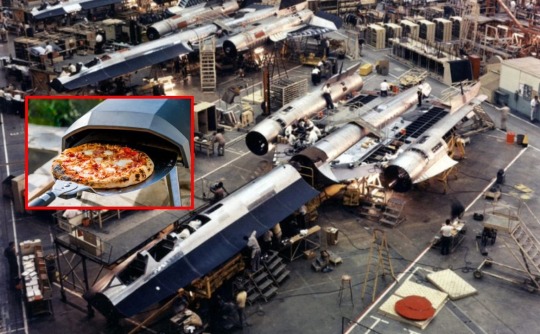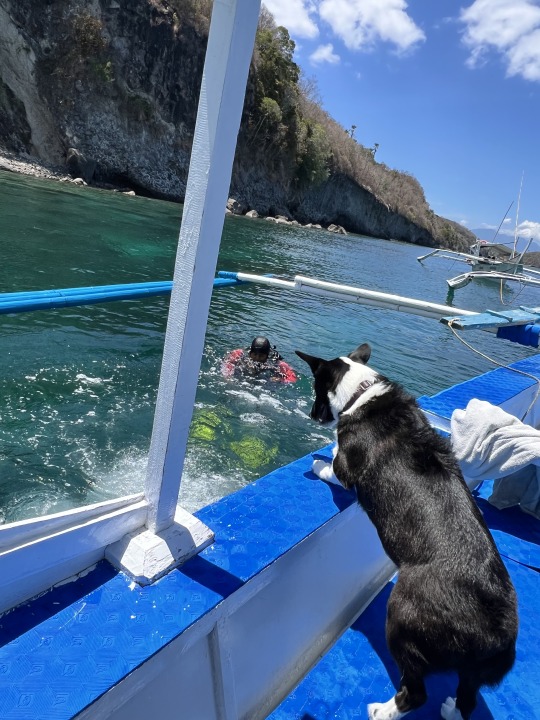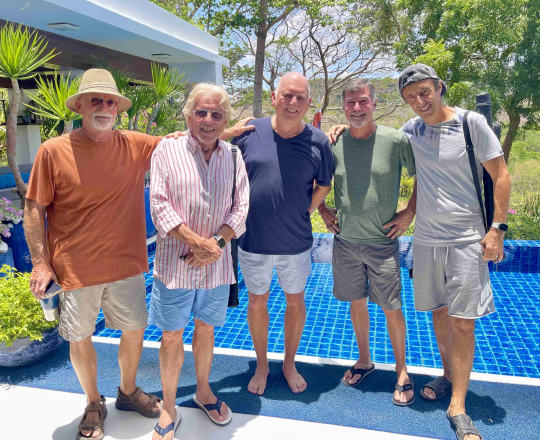#Import Export Training Classes
Explore tagged Tumblr posts
Note
I'm writing a sci-fi story about a space freight hauler with a heavy focus on the economy. Any tips for writing a complex fictional economy and all of it's intricacies and inner-workings?
Constructing a Fictional Economy
The economy is all about: How is the limited financial/natural/human resources distributed between various parties?
So, the most important question you should be able to answer are:
Who are the "have"s and "have-not"s?
What's "expensive" and what's "commonplace"?
What are the rules(laws, taxes, trade) of this game?
Building Blocks of the Economic System
Type of economic system. Even if your fictional economy is made up, it will need to be based on the existing systems: capitalism, socialism, mixed economies, feudalism, barter, etc.
Currency and monetary systems: the currency can be in various forms like gols, silver, digital, fiat, other commodity, etc. Estalish a central bank (or equivalent) responsible for monetary policy
Exchange rates
Inflation
Domestic and International trade: Trade policies and treaties. Transportation, communication infrastructure
Labour and employment: labor force trends, employment opportunities, workers rights. Consider the role of education, training and skill development in the labour market
The government's role: Fiscal policy(tax rate?), market regulation, social welfare, pension plans, etc.
Impact of Technology: Examine the role of tech in productivity, automation and job displacement. How does the digital economy and e-commerce shape the world?
Economic history: what are some historical events (like The Great Depresion and the 2008 Housing Crisis) that left lasting impacts on the psychologial workings of your economy?
For a comprehensive economic system, you'll need to consider ideally all of the above. However, depending on the characteristics of your country, you will need to concentrate on some more than others. i.e. a country heavily dependent on exports will care a lot more about the exchange rate and how to keep it stable.
For Fantasy Economies:
Social status: The haves and have-nots in fantasy world will be much more clear-cut, often with little room for movement up and down the socioeconoic ladder.
Scaricity. What is a resource that is hard to come by?
Geographical Characteristics: The setting will play a huge role in deciding what your country has and doesn't. Mountains and seas will determine time and cost of trade. Climatic conditions will determine shelf life of food items.
Impact of Magic: Magic can determine the cost of obtaining certain commodities. How does teleportation magic impact trade?
For Sci-Fi Economies Related to Space Exploration
Thankfully, space exploitation is slowly becoming a reality, we can now identify the factors we'll need to consider:
Economics of space waste: How large is the space waste problem? Is it recycled or resold? Any regulations about disposing of space wste?
New Energy: Is there any new clean energy? Is energy scarce?
Investors: Who/which country are the giants of space travel?
Ownership: Who "owns" space? How do you draw the borders between territories in space?
New class of workers: How are people working in space treated? Skilled or unskilled?
Relationship between space and Earth: Are resources mined in space and brought back to Earth, or is there a plan to live in space permanently?
What are some new professional niches?
What's the military implication of space exploitation? What new weapons, networks and spying techniques?
Also, consider:
Impact of space travel on food security, gender equality, racial equality
Impact of space travel on education.
Impact of space travel on the entertainment industry. Perhaps shooting monters in space isn't just a virtual thing anymore?
What are some indsutries that decline due to space travel?
I suggest reading up the Economic Impact Report from NASA, and futuristic reports from business consultants like McKinsey.
If space exploitation is a relatiely new technology that not everyone has access to, the workings of the economy will be skewed to benefit large investors and tech giants. As more regulations appear and prices go down, it will be further be integrated into the various industries, eventually becoming a new style of living.
#writing practice#writing#writers and poets#creative writing#writers on tumblr#creative writers#helping writers#poets and writers#writeblr#resources for writers#let's write#writing process#writing prompt#writing community#writing inspiration#writing tips#writing advice#on writing#writer#writerscommunity#writer on tumblr#writer stuff#writer things#writer problems#writer community#writblr#science fiction#fiction#novel#worldbuilding
308 notes
·
View notes
Text
Okay okay that shatterproof modern au is so much fun I'm gonna mark down what everyone does here because I didn't want to let the authors notes get too long and I couldn't include every detail in the fic itself—
Time and Malon run Lon Lon Ranch, which is mostly a cattle ranch with some horses. They're working on getting everything set up to do some fostering (for humans, to be clear) in the future. The ranch is a successful business and exports mostly milk products to local stores, though they also have an orchard and do apples and pumpkins in the fall! Lullaby is a local politician, think state-level congress.
Hyrule lives on the ranch while going to school to become a physician. He's not related to them, but he is related to Malon's cousin's friend or something like that. He isn't allowed to help with the dishes due to Incidents in the past. He likes taking walks around the ranch and talking to the cows while he studies. He spends a lot of time with Legend, whose family is actually sponsoring Hyrule in school. Dawn is in a lot of his classes, and Aurora is her sister in a business program. The three or four of them hang out at the university a lot.
Wild also lives on the ranch, not currently going to school. He works there, and also does a lot of volunteering at the local food bank. He's learned to cook a lot of authentic food from all around the world from rubbing shoulders with people there. He doesn't talk a lot about his past, but Time and Malon know that Wild's parents sucked and that he's pretty much no-contact with them. He's rebuilding his savings after draining it all (plus more) on medical bills for his heart condition. He's pretty happy where he is, and looks forward to the day when Time and Malon get a foster kid or two. Flora's a childhood friend, doing a second PhD of her own right now.
Twilight works at the ranch with the animals, and takes a shift at a vet office every so often. He helps Hyrule study, since he finished out his degree in veterinary science a while ago. He's torn between getting a more serious veterinary job, going into medical research, and staying at the ranch full-time. He's accidentally made some really good connections in Midna and Dusk, who are both in high society (though Midna doesn't always act like it!)
Four is Twilight's younger brother (Twi was adopted as a young kid, so he remembers Four being a baby), and the two of them rent out a wheelchair-accessible apartment. Their hometown is a few hours away, but they always find time to go for important holidays. Four works at a garage in town and ends up servicing a lot of heavy machinery. He wants to get into doing some more craftsman-type work, but is having a hard time finding a place to experiment with it. He's working on saving up for some art/sculpture classes at a university, but has been really distracted with his job recently. He met Dot and Shadow through a trauma survivor's group, and right now they all go out for lunch every so often.
Warriors actually has a hard time with jobs and such. His steadiest gig right now is helping out at a large local martial arts studio, where he helps to train and spar against the advanced students. He wouldn't mind helping out the kids, but the fact that most of them don't know sign language is a barrier. He's drifted around several office jobs, but he's really just not one to sit down and do one thing all day. He keeps advancing at the summer camp they all go to, however, and that takes up more and more of his time, so he's not really all that worried about getting a more "normal" job. Impa runs the martial arts studio and Artemis is one of the head instructors, and he's good friends with both of them.
Wind is Warriors's younger brother, and the two of them live in the same apartment building as Twilight and Four. He's doing the college thing, at the same location as Hyrule, but Wind prefers online classes. He's part of the swim team, though, and likes going out to the lake when he can. (Tetra is another member of the swim team!) Wind has changed his major like six times, and works part-time at a smoothie shop. He likes playing video games.
Legend has also done a ridiculous variety of things, but right now he works at a very fancy restaurant doing mixed drinks, and actually managed to find a competition for it that he won some awards for. In conversation, he'll often reference other jobs or roles he's had but nobody knows the whole list. (He's referenced delivery driving, movie sets, an engineering firm, an insurance broker, a high-end jewelry store, a cruise ship, and several other things.) He comes from a rather wealthy family but his parents passed and he doesn't have a lot of contact with extended family. He writes out money to a lot of people under the guise of various organizations his family technically owns, and that includes helping Hyrule through medical school. Fable is his sister and way more involved in high society stuff, but she forces him to come to some of it sometimes.
Sky lives with his girlfriend in an apartment in the city. He spends most of his time doing translation work for the government, things like driver's license forms and ballot instructions (he works well with several different written languages). He does interpreting too when he needs to, and has another small job on the side at a natural history museum leading sign language tours.
And all of them go to camp! Sky and Warriors are both assistant directors, Time drives the supply truck, Wind does the sailing and swimming instruction, Hyrule the first aid guy, and most of the rest of them are part-time or full-time counselors during the summer. It's fun. :)
#shatterproof#linked universe#silly times#drafted this in june and it just needed a touch uo#up#<3#lu
59 notes
·
View notes
Text
Johto Culture/Worldbuilding Headcanons
Since the New Bark Town kids are out of the way, I figured I'd do some basic worldbuilding stuff before we start covering more characters. There's more I'll cover later on, but to start off with, let's go over the general culture of Johto!
As a whole, the people of Johto lean towards more "traditional" values such as putting family first, a sense of obligation towards their communities (national pride/patriotism is very strong in older populations), an emphasis on respect towards elders, etc.
That being said, Johtonians are also very private---typically, what happens behind closed doors stays behind there for better or for worse. That doesn't mean people aren't extremely nosy, just that they wouldn't actively disrupt the public peace with their gossip.
Joint families are the most common form of family unit, though nuclear families have become more prevalent in cities such as Goldenrod due to limited living space. Houses tend to consist of one main living space (usually living room/kitchen/dining room combined) with bedrooms and bathrooms accessed through either a side hallway or a second floor. Sometimes (usually in downtown areas), a family business may be on the first floor while living/private spaces will be located on the second floor.
Similarly to Sinnoh, Johto's history is considered very important and conservation efforts are taken very seriously across the region. However, those efforts are mostly aimed towards preserving current knowledge instead of actively discovering the past, meaning there is still information that gets forgotten and lost to time.
Due to this (and also because of the burning of Brass Tower), Ho-Oh receives much more reverence than Lugia. Before, they were considered the twin guardians of the region and protected the balance between people and pokemon, but now, Ho-Oh has been deified while Lugia is sidelined and nearly forgotten.
Johtonians have a very distinct accent, mostly since they're a bit more secluded compared to other regions. Goldenrod and Saffron City residents have a stronger mix of Johtonian and Kantonian accents mostly due to tourists and commuting workers on the Magnet Train.
Johto exports a large amount of artisanal and handmade goods, especially woodcrafts such as cabinets or other large furniture (it's much more heavily wooded compared to other regions), but the region also has a very successful maritime industry that could almost rival Hoenn's.
Johtonians receive their ID card on their 13th birthday. At that point, they may opt in to take the gym challenge. If they do, they will receive a trainer card that contains information pertinent to the gym challenge on the back, which is then updated with every gym the trainer beats. They will keep the same ID their entire life regardless of whether they complete the challenge.
On a similar note, the age of majority is 20, which is a bit older than most other regions (Sinnoh/Kanto are 18, Hoenn is 17, etc etc.)
Children typically get their first pokemon (also referred to as their starter pokemon) at a very early age. This is to help teach them responsibility and respect for pokemon, and it provides them protection when they're unsupervised.
Public schooling is free up to 13 years age, at which point they can choose to pay to go to secondary school, take a break to go on a pokémon journey and take on the gym challenge, or quit altogether.
Far more often than not, children will take about a year to go on their journey and then go back to school. Upon their return, they generally have the option to skip certain classes (both the ones they missed and future classes) if they're able to put together a decent report detailing their experiences and what they learned on their journey. If not, they may have to catch up and even be forced to graduate a year later than their peers.
Nontraditional scenarios include students returning from their journey earlier or later than a year, students going on their journey and not returning to school, or going on their journey/dropping out of school at older than 13 years (there is technically no upper age limit at which the gym challenge can be started).
Crime rates are pretty low (especially major crimes such as assault, burglary, kidnapping etc.), which is part of the reason why children are allowed to roam the region unsupervised. This is mostly due to heavy restrictions on which/how many pokemon are legal to own, with and without certain permits. Additionally, the maximum number of occupied pokeballs a person is allowed to carry at once is six, although the average person will own at most three pokemon. Such laws are common in other regions, but Johto is more strict about their regulations.
Additionally, since taking care of children is often a community undertaking ("it takes a village to raise a child"), many adults will keep a close eye on nearby kids and keep them out of trouble regardless of whether they're related.
Honorfics are pretty much mandatory, the more so the younger you are. In a casual context, everyone older than the speaker is refered to as Aunt/Uncle no matter their actual age or relation. However, this can be seen as rude if said to someone of a similar age to the speaker. When speaking to strangers and/or people of an unknown age, it's safe to just refer to them as Ma'am/Sir. Grandma/Grandpa is a highly respected honorfic and is reserved for family-use only unless the speaker is invited (the same goes for Mom/Dad, just to a less strict degree). There are other honorfics in common use, but they're usually used in workplace/formal contexts (such as refering to coworkers, public employees, and even hosts if you're staying at someone's home).
Since traveling trainers can’t hold down a steady job, a common way to earn money is just to pop into local businesses and ask if they need help. It’s not guaranteed to work, but most businesses will either find something small for them to do or recommend a different business to ask.
Hospitality is a huge source of pride for most households, especially out in rural areas. It doesn't matter if the visitor is family or a complete stranger, they're to taken care of to the absolute best of a household's abilities. In return, guests treat their hosts with the upmost respect and will often leave tokens of their gratitude. (it's not uncommon for trainers to randomly show up at your door looking to spend the night if you live out in the middle of nowhere)
Live performance tends to be the most popular form of entertainment across the region, including traditional/ceremonial productions, theater, and music. Historical enactments are also very popular during festivals. This is in part because oral storytelling used to be the region's main form of chronicling its history. (There are a few exceptions, such as the Dragon's Den containing extensive records of the Dragon Tamers and the local area, but unfortunately, access to those records is generally very limited.)
Slowpoke tails are somewhat of a local delicacy, but because Slowpoke farms are few and far between (there's strict laws on humane treatment such as how many Slowpoke can be kept on one farm, the space and amenities required to keep them, harvesting methods, etc.), they tend to be quite expensive and typically have to be sourced from the farms themselves. Trying to export them in large enough quantities is even more expensive, especially before the shipping methods are modernized, so for a long time the tails remain purely a Johtonian cuisine.
#‼️personal canon zone‼️#pokemon#pokemon hgss#hgss#headcanon#pokemon headcanons#johto#worldbuilding#← technically??#oh my god this has been such a long time coming#tbh i probably could've posted this a while ago but i really wanted it to have a substantial amount of info right off the bat#rn though i just want to free it from the depths of my drafts#and as always i'll add to this as I come up with new ideas#there's also a lot of stuff i thought of while brainstorming that didn't really apply to this post#like some infrastructure things that might fit better in the town-centric post#some of this stuff applies to other regions as well/the pokemon world as a whole but that's too wide of a scope for what i want to cover rn
53 notes
·
View notes
Text
The End of Eternity "Timeline"
I've compiled a list of events associated with each Century in Asimov's Eternity. I tried to be as thorough as possible, but I may have missed something; please let me know. Spoiler alert for the best story ever imagined about time travel, a novel which turns 70 this year:
24th: Brinsley Sheridan Cooper becomes Vikkor Mallansohn, "discovers" and builds a Temporal Field, takes it to Caltech, meets the unnamed lunch counter man, and sees Professor Zimbalist's demonstration with a white mouse
27th: Jan Verdeer's experiments pave the way for Antoine Lefebvre to construct the basic mathematical equations of Reality; Eternity established; end of Primitive history; Senior Computer Henry Wadsman, "the first of the great Eternals," opens the Mallansohn memoir, which had been enclosed in a tube of Time-stasis for 3 Centuries
45th: car-like vehicles
50th: make something called a "grafenpiece"
55th: Technician Andrew Harlan uses a "molecular recorder" from this century when he works as an Observer
72nd: only Century that exports good cigarettes
78th: Cooper's homewhen; he was a "Speedy-vac" repairman; very little advertisement
95th: Harlan's homewhen; "stiffly restrictive of atomic power, faintly rustic, fond of natural wood as a structural material, exporters of certain types of distilled potables to nearly everywhen and importers of clover seed;" Spartan taste in furnishing; middling level of advertisement; proverb = "Grip the nettle firmly and it will become a stick with which to beat your enemy."
123rd: smoking forbidden
182nd: car-like vehicles
186th: some level of advertisement
222nd: Administrator Arbut Lemm works here; the 13th reality of this Century developed the Temporal Pressor, which was essential to the creation of Cooper's one-way kettle
223rd: Harlan enacts his first Reality Change by jamming a vehicle clutch
224th: Harlan's first Reality Change prevents a war and a great work of literature (which is preserved in Eternity's libraries)
289th: "sickly sweet literary tradition"
290th: in Reality 54 of this Century, space-travel is "a valuable safety-valve"
300's: most Centuries are matter-oriented, but these ten have energy-oriented "energy vortices" which are confusing to matter-oriented people; sometime in this millenium, the mass duplicator was invented, which Eternity uses to clone its Sections (offices), one for every Century for millions of Centuries; this technology, which could also be used for cloning people, was deemed too dangerous and removed from Time
482nd: Harlan's first unsupervised Observer assignment; Assistant Computer Hobbe Finge works here; "an era without ethics or principles… hedonistic, materialistic, more than a little matriarchal;" the only era in which "ectogenic birth" flourishes; marriage is informal; eugenics is normalized; characterized by "heavy plaster swirls…splashy pigments…painted metal;" the upper-classes believe that you can become immortal if you have sex with an Eternal; upper-class women wear "transparents sheathing" above the waist, "flimsy, knee-length trousers," and jeweled pendants, and speak with a lisp; wealth distribution is uneven to a barely acceptable level; upper-class men wear clinging, seamless, brightly-colored clothes; Reflector = 3-D mirror; June and February still exist; Mekkano = small floating device which serves drinks; pene-prong = fork; music box that generates random notes "by intricate mathematical formulae"
575th: Harlan's permanent station, where he lives and trains Cooper; also the permanent station of Senior Computer Laban Twissel (and the homewhen of his long-lost love); characterized by "glass and porcelain" and a "fetish of cleanliness;" "a world of whiteness and clarity, broken by sparse patches of light pastel;" its Section's library has the best collection on Reality Changes "outside the Central Branch itself;" Eric Linkollew = greatest writer of the Century; neuronic whip = weapon that can torture and kill by paralyzing the nerves
590th: car-like vehicles
600's: most Centuries are matter-oriented, but these have energy-oriented "field dynamics" which are confusing to matter-oriented people; Finge's homewhen
803rd: Senior Computer August Sennor's homewhen; the fashion is for people to be depilated, which is so freakish that they are not usually chosen for Eternity
900s: nerve-regenerating techniques
984th: car-like vehicles
1174th: a particularly deforested era; exports smoked fish
2456th: "molecular films" make every surface reflective; someone wears glistening shoes made of red, semi-transparent material; they communicate long-distance with devices that emit patterns of clicks; Sociologist Kantor Voy and Life-Plotter Neron Feruque work here; Harlan enacts Reality Change 2456-2781, Serial Number V-5 (moving a container from one shelf to another); exports anti-cancer serums
2481th: before Reality Change 2456-2781, Serial Number V-5, this Century was the only one to develop electro-gravitic space-travel
30000's: Twissel's homewhen
70000th-150000th: the "Hidden Centuries;" the Stations are barely furnished, and you can't step out of them into Time
100000: a time-block briefly stops kettles here
111394th: Lambent's homewhen; she "hides" here
125000th: somewhere past this Century, mankind invents the interstellar drive
150000th: humanity has disappeared
8 notes
·
View notes
Text
You know what's bleak, the fact adventuring is so important to the world but is out of reach for the general person.
Adventuring is one of the key export markets for Solace and we know most of the world doesn't have their levels of technology. Solace adventurers are needed around Spyre for terrifying quests. But in The Seven, its clear that most adventuring parties need a patron to fund them. Apparently this essential service is a private industry?
So it's exclusive to those able to find funding. It reminds me how, at least in the UK, most news outlets require unpaid internships. When I was studying, my lecturer pointed out many young, left leaning journalists start out at Daily Fail because, even though they don't agree with the paper, they paid new journalists. You either have the money behind you to do unpaid work, or you bite the bullet and work in gross places.
In Spyre, most (financial) patrons are dragons. The Seven were unwilling to bend on the "no dragons" rule but how many other adventuring parties can't afford to stick to morals if they want to continue adventuring.
And then there's even the costs involved in training to be an adventurer. We see how expensive it is for wizards, but also clerics and other spellcasters with material components. There doesn't seem to be financial support and I'd bet loads of students drop out of Augefort due to costs. The way The Bad Kids and everyone else mocks or looks down on Mumple is even more depressing when you see them as all the people who don't get the chance to go to Augefort.
And then there's even the costs involved with moving to Elmville because apparently this is the only adventuring academy?
All this is to say its messed up that we lock the lower economical class out of industries that inevitably produce people in positions of power who need to consider the needs of the lower class but don't because they don't understand those needs.
23 notes
·
View notes
Text


With temperatures on the SR-71’s leading edges exceeding 1,000 degrees Fahrenheit, dealing with the heat raised a host of seemingly insurmountable design and material challenges. Titanium alloy was the only option for the airframe —providing the strength of stainless steel, a relatively light weight, and durability at the excessive temperatures.
Kirchoff’s law of thermal radiation this basically states that a good absorber is a good emitter , and a good absorber of heat is a black body.
Black paint generated, and Emissivity value of 0.93 compared with 0.38 for bare titanium resulting in a reduction in surface temperature of 15 to 30 degrees celsius. This was well worth this 60 pounds in additional weight of paint.
In Ben Riches Book “Skunk Works,” it was himself who suggested this idea to Kelly Johnson. Ben was the second man in control of the Skunk Works after Kelly’s retirement..
Titanium, however, proved to be a particularly sensitive material from which to build an airplane. The brittle alloy shattered if mishandled, which meant great frustration on the Skunk Works assembly line, and new training classes for Lockheed’s machinists. Conventional cadmium-plated steel tools, it was soon learned, embrittled the titanium on contact; so new tools were designed and fabricated—out of titanium.
But most important the US did not have the necessary ore. The world’s largest supplier of it was the Soviet Union, America’s enemy during the Cold War.
Titanium procurement during the Cold War was so vital to the US’ goal of defeating the Soviet Union that it had to secretly buy the metal from the very country it sought to vanquish. It was 1960 and Washington needed spy planes that could avoid detection in Soviet airspace by flying to the heavens. To make what would become the vaunted SR-71 Blackbird, Lockheed knew it had to build a light plane, but one that was strong enough to hold extra fuel to give it expansive range. The only metal that would do the job was titanium. The only place to get titanium in the needed quantities was the Soviet Union.
The US worked through Third World countries and fake companies and finally was able to ship the ore to the US to build the SR-71.
“The airplane is 92% titanium inside and out. Back when they were building the airplane the United States didn’t have the ore supplies – an ore called rutile ore. It’s a very sandy soil and it’s only found in very few parts of the world. The major supplier of the ore was the USSR. Working through Third World countries and bogus operations, they were able to get the rutile ore shipped to the United States to build the SR-71,” famous former SR-71 pilot Colonel Rich Graham said in an interesting article appeared on BBC. According to the following video, one of the bogus operations mentioned by Graham saw the US asking Soviets for titanium because they needed it for pizza ovens youtu.be/9mVXdo0QmPo
And Russians easily believed that the US needed titanium for thousands of pizza ovens. After all, they fraudulently possibly told their comrades that the United States was a lazy country that probably couldn’t even cook for itself. They need it to go out to buy pizza…
Ultimately, through third parties and fake companies, the US, “managed to unobtrusively purchase the base metal from one of the world’s leading exporters – the Soviet Union,” according to the book Skunk Works by Ben Rich, a Lockheed Martin engineer who worked on the SR-71. “The Russians never had an inkling of how they were actually contributing to the creation of the airplane being rushed into construction to spy on their homeland.”
Andriy Brodskyy contributed to this article. Written by~Linda Sheffield for Aviation Geek Club
Be sure to check out Linda Sheffield Miller (Col Richard (Butch) Sheffield’s daughter, Col. Sheffield was an SR-71 Reconnaissance Systems Officer) Facebook Pages Habubrats SR-71 and Born into the Wilde Blue Yonder for awesome Blackbird’s photos and stories.
@Habubrats71 via X
20 notes
·
View notes
Note
hiii, happy WBW! any taboo or forbidden practices that get done regardless in your world?
It varies between the different people groups, but there are a few things that are more commonly taboo and still done anyway.
Consuming the flesh of people and/or using their body parts is taboo enough to be the subject of many many interspecies laws around the world. Orcs in nearly every continent have had to fight and push to make these laws more precise, so they can still practice their important spiritual traditions like funerary cannibalism and the use of family bones for heirlooms. For the most part, the laws forbid only consumption and body part usage between different species of people. For example, it would be illegal for an elf to use orc hide/leather in a craft project. Exceptions have been made for naturally shed materials like hair. The ogres have very thick fur that sheds out in the spring, and one of their main exports is yarn made from their own shed fur.
And there are a lot of half orcs that ignore the problem of whether being mixed species would make it illegal for them to participate in the funerary cannibalism when their orcish parents die. They don't go out looking for a legal exception, they just keep quiet about it and no one really pushed the matter.
One interesting case where interspecies consumption law is also technically violated but not dealt with is the matter of quetzalin picking external parasites off their centaur friends and eating the things. Centaur ticks are considered a delicacy in quetzalin cuisine. But it might technically be a violation of the "don't eat other people" law becase the ticks are often full of centaur blood.
There are also magic taboos! Using the life energy of another living creature, for example. Magic is complicated, and it's a little unclear what exactly it means to "use" another creature's energy. Does it count when you're healing someone and connecting with their soul to help them overcome an injury or illness? Or what about hunting rituals that are used to train people in deeper magic techniques by making them familiar with the sensation of death?
The actual taboo there is using magic to cause harm, especially if you bypass the use of your own power by stealing it from another creature. There are a lot of old stories, some true, all exaggerated, describing evil spellcasters sacrificing animals and people to cast mass curses and the like. Which is not actually something magic can do. You can only affect someone with magic while you're in direct contact with them.
Necromancy is also ill defined and very taboo. It is impossible to truly bring back the dead, but complicated enough magic can puppet organic materials like an automaton. It's been used by charlatans to fool grieving families in the past. But some believe it can also be used to create more efficient undying work animals. Ultimately, the magic is so complicated it becomes less efficient than just breeding stronger work animals or building normal mechanical devices.
There's also soul binding. Extremely forbidden, to the point where all mortal records of it have long been destroyed. It's taught about in university classes on magic, as part of the history of magic. It ties two souls together, creating an empathic bond and allowing them to share life energy. In theory, it keeps both people alive through injury and illness and makes them more synchronized as a pair. It was once used to formalize political allegiances, with or without marriage involved. It was also used to make soldiers more effective in war. But in practice, it is mentally and emotionally overwhelming, kills both people faster as they drain each other's energy, and creates more strife than synergy. the only way to end the bond without both people dying is for one of them to kill the other with a bone tool of some sort. Bones have always been the most effective material for channeling magic energy.
All that said, it is very difficult to regulate magic by law, so people around the world still try to rediscover the old forbidden techniques, maybe trying to perform evil deeds or maybe hoping they'll find a better way to do the thing. New taboos crop up all the time as well. Experimental magic is a difficult field to regulate! It's a mess.
3 notes
·
View notes
Text
Minrathous: Middle Level - High District

Residences
Plaza Dumat
High Docks
City Guard Barracks
Archive Palace [Locus Cognitionis]
Public Library of Mirnathous
Temples and Shrines
Draconis Aurei [Golden Dragon]
Luxurious Brothels
Luxurious Inn: The Silver Serpent [Serpens Argenteus]
Bathhouse: Fons Splendoris [Fountain of Splendor]
Lore Warning: A good amount of information presented here is canon, linking their sources when it correspond. The rest is crafted-lore for personal fictional reasons.
Minrathous || High Level || Middle Level || Low Level
For more world-building and crafted-lore: Dragon Age Dreadwolf Tag of DA Crafted Lor
Middle Level: Upper Class Areas

Residences: It’s mostly filled with Manors and Villas of magisters, palaces of Altus, and mansions of merchants and military members.
Plaza Dumat: In the center of the middle level lies a green area adorned with trees and vibrant flowers, sustained by magic. The entire area is embellished with impressive statues of dragons and metallic Tevinter golems. It displays in the center a gigantic statue of Andraste, The Lady of Victoty, with a hand casting blue fire, as an eternal representation of her as a mage.
High Docks: highly controlled docks where exclusive legal cargo is managed, with a particular focus on the importation of fine products from Antiva and Rivain, such as clothing, gems, legal magical components, herbs, fruits, and food.
City Guard HQ and Barracks: This building serves as the headquarters for the City Guards, where they convene to discuss security matters, impart training, and handle recruitment. It maintains a close relationship with the Argent Spire, since the most questionable Templars are often demoted to city guards, while well-behaved city guards can be promoted to Templars. The City Guards are equipped with low-quality enchanted weapons and armor.
They permit human mages, particularly those who are poor Laetans and Liberati mages, to be part of the City Guards. However, these guards are not eligible for promotion to Templars in order to avoid “compromising” the Templar institution [ha!]. Elves are rarely seen serving as City Guards.

Archive Palace [Locus Cognitionis - Palace of Knowledge]: is a large building with multiple chambers that display flying libraries. These shelves are enchanted to prevent the accumulation of dust and humidity. The archive includes a chamber with ancient artifacts that resemble Elvhenan designs. It also preserves ancient lineage documents that confirm the Dreamer ancestry of families recognized by Tevinter. Additionally, it holds migratory records and moderately significant magical artifacts. The archive also stores import and export records, particularly those from the High Docks. It participates in the exchange of books, paperwork, and personnel with other archives throughout the Imperium.

Public Library of Minrathous : Public library which, ironically, can only be accessed by Altus. If Soporati and Laetans wish to gain access, they must initiate bureaucratic procedures to obtain a temporary usage permit. Part of this approval process needs to be completed at the Archive Palace.
Temples and Shrines: Temples originally dedicated to the Old Gods have been repurposed as shrines to the Maker or Hessarian, with minimal Andraste iconography present.

Golden Dragon [Draconis Aurei]: Upscale tavern/nightclub that offers a wide variety of drinks and drugs, both legal and illegal. It features discreet corners for romantic encounters, casual relationships, gambling games, and solitary entertainment of any kind.

Luxurious Brothels: There are several upscale brothels exuding an air of exclusivity and sophistication. Arcanae Voluptatis [Secrets of Pleasure]. There is also An Aqua Brothel: Aquae Amoris [Waters of Love].

Fons Splendoris [Fountain of Splendor] : Public bathhouse, secretly owned by the Lucerni. It is frequented by Altus, Laetans, and affluent, influential Soporati involved in trade and the military. Much like in ancient Rome, it serves as a venue for gatherings and meetings. The bathhouse also offers massages and basic forms of physiotherapy using herbs and water-based treatments. It is an ideal location for both listening to and spreading rumors.
The Silver Serpent [Serpens Argenteus]: One of the most exclusive and sophisticated palace inns in Minrathous, it is the preferred choice for emissaries, ambassadors, and wealthy merchants visiting the city.
3 notes
·
View notes
Text
So back in high school I was forced to take economics. That's not necessarily a bad thing, I suppose. Money is the blood of our society, so learning how the commercial circulatory system works can be useful. That I hated every second of it was, to some degree, a personal issue. I can admit to that.
But.
My teacher spend a class showing us the entirety of Greed with John Stossel, a 1998 special on the nature of "greed" and why even though it's objectively a bad thing, it's actually super awesome and the sole reason for the existence of everything we know and love. I should note that this was in the year of lord 2008, a full ten years after the special was made and just around the time of that huge US economic crisis that many people are still trying to crawl their way out of. It sure was a choice to choose this particular moment in history to show your class of impressionable students the joys of trickle-down economics.
The piece stuck with me. I've never seen Wall Street because I hate Capitalism and America, but I do know the quote "Greed is good" because it's quoted in Greed with John Stossel a number of times. As nearly two decades passed, I would bring the piece and the quote up whenever I happened to be talking about how the United States conditions its people to believe in self interest above all else, from a very young age. But I could never remember what the special was actually called, and many people thought I was just misremembering Wall Street, which again I've never seen and don't plan to. But I did start to wonder if I was misremembering things. Did my inherent bias against the American Dream and subsequent evolution into an adult who was recently told they "might be kind of an anarchist" perhaps cause me to think of this obscure 90's special as worse than it was?
I'm pleased to announce that no, it did not. I finally tracked the thing down (it's on YouTube in six 7-minute parts) and was just as horrified and angry about it as I was when I was a teenager. Some of my favorite terrible things from it include:
John Stossel calling scientists "greedy for knowledge" and artists "greedy to create something new."
John Stossel talking about some experiment where people could take dollars bills from a bowl, but every ten seconds if there something left, the money would be doubled, and using the group's initial inability to not just grab all the money immediately as proof that people are inherently greedy all the time - despite the fact that they later decided to work together to take the money in shifts to make sure everyone got some, which Stossel decided was proof that only greed can inspire teamwork.
"Children who are born into poverty are fascinated by capitalism" said by a guy who randomly decided to leave his import/export business to teach business math at "the worst school in New York City." Stossel then added "We tend to think of capitalism as something only the privileged practice, but it's actually the great equalizer." This was then followed by objectivist philosopher and Ayn Rand fanboy David Kelly saying "It's the poor who need capitalism the most." At no point did any of these men ponder the root causes of poverty.
The entire section with Jeff Ellis, who owns a for-profit lifeguard training business that (at the time, not sure if they still) actively stalks and films their lifeguards at random while they're on the job to make sure they're not slacking off. The point of the segment is that you get better quality lifeguards from a for-profit program than from a non-profit, like the Red Cross. Never mind how underfunded non-profits are, or the fact that anyone will perform better when they know they're being spied on. This is one of the few sections I vividly remembered from high school, for some reason.
Pretty much everything that comes out of David Kelly's mouth.
Computer Chip CEO TJ Rogers laying off hundreds of employees despite his company making a profit and being worth 2.8 billion dollars, then telling us in his mansion next to his private vineyard that, "I build it, I own it, I deserve it," followed by "I could take what I have and never have to work another day in my life," then finally, "...the world's better off when I make a dollar than when I don't." We're supposed to be on his side, because he created new wealth.
John Stossel saying to the audience "Frankly, I didn't see any of you turning down your last pay raise" like it's some kind of profound wisdom. Joke's on him, the only pay raise I've ever gotten without changing positions was $1, which I wasn't even given the choice to refuse.
The continued insistence that the richer these CEO's get the better off "we" will be, as if Stossel is a.) one of "us" and b.) presenting any genuine evidence to support this claim beyond "creating more wealth and jobs is a thing."
TJ getting mad at Ted Turner because he gives money away, saying he should instead take his money and "invest it, you can't help people any other, better way than to invest it and to have the companies and buildings and plants that are created with his investment create wealth and jobs and products for other people."
Ted Turner asking John Stossel why the rich can't create jobs and give money to those in need, to which Stossel answers, "because you and Bill Gates are so good at creating jobs, and isn't that the best gift?" which causes Ted Turner to walk off as everyone on set laughs at him.
"So the next time someone tells you you're greedy, tell them that greed created civilization, is that so bad?"
I realize I just basically recapped this entire monstrosity rather than listed the highlights. I also realize the futility of getting angry at something that's over twenty-five years old. I'm less angry about the special itself, and more angry that an educator tasked with teaching economics felt the need to devote an entire class to this, but failed to teach any of us how to do our taxes. Or about where our taxes go. Or about the literal financial crisis that was happening around us. But then, if you truly believe that greed is good, then discussion how greed just completely destroyed everything isn't something you'd want to touch with a ten foot poll.
My mother later met my economics teacher at some sort of school event. She knew how much I hated this class and this teacher, but was polite about it. My teacher commented that I was "a bit of socialist" but then said, "most are at that age."
I hated economics class.
I still hate that economics class.
Greed is not good.
#rant#I'm not sure why I needed to get this out of my system#I can't believe I spent more than two hours giving John Stossel the time of day#I accidentally missed a lesson I was supposed to teach while watching this#now I'm lower on the tutor tier list and in sanity#economics#capitalism#corporate greed#education
2 notes
·
View notes
Text
A Whole New Chapter
In past blogs I’ve written every week or two. Here I am nearly 3 months into this current adventure and I finally sit down to write. I was really planning to give this up but I’ve endured a fair amount of grief from some of my readers, and with a hopefully blog-worthy event coming up (road trip!) Georgia has encouraged me to get back with the program.
Lots of catching up to do! But before I even get to the Philippines, I’ll take you back all the way to our previous trip. One day, as I was paying the bills necessary to maintain a home in the mountains of California, I thought about the monthly costs for electricity, propane, water, sewer, home & auto insurance, property taxes, etc. and wondered why we were paying so dearly for a home we only used half the time, and planned to use even less in the future. Georgia and I thought about it and talked and decided to downsize and relocate our base in the US, and spend most of our time over here – maybe 9-10 months a year.
And between May 2023 and our return here in March, that’s just what we did. We first found a small home on a ¾ acre lot, still under construction, in Fernley, Nevada. This promised much lower expenses than Graeagle, plus Nevada has no state income tax. As one example, our homeowner’s insurance is $328 per year, while we paid more than that every month for the house in Graeagle. Everything else has scaled accordingly, and though we’re not particularly in love with Fernley, it gives us what we need when we’re there, and we feel safe just locking up the house and leaving for 5-6 months at a time.

The new US Headquarters in Fernley
The house in Graeagle was put on the market in September, and in one day we had a buyer, with cash, and the deal was done! We stayed in the house until after Georgia’s son Matt was married (in Graeagle) then began the move to Fernley. By November 15 we were Nevada residents.
Max
Although Max was well taken care of while we were gone, by Georgia’s sister Dignah, we were the ones who suffered, missing him terribly. We decided to bring him with us, and leave him here during our short return trips to the US. Our caretakers love dogs so it should work out well.
I asked my nephew, who flies for a major airline, about the best way to fly a dog overseas. “Easy” he said, “he just needs to get registered as a medical service dog then he gets to fly in the cabin, for free.” Lucky for us, he’d done that for one of his own dogs and knew the ropes. Soon enough, Max was a “trained and certified” service dog, able to alert to Georgia’s condition. And no, ADA laws do not allow you to ask what that condition is.

Doesn't he look handsome on his ID card?
That was indeed the easy part, and only guaranteed Max a comfy seat on the plane. The path started with Max’s vet, who researched the health and vaccination requirements both for import to the Philippines and export from the US. Max got to know his vet well over the next few months but, as attested to by the lengthy USDA export form, he was perfectly healthy. A complete medical and vaccination history was provided to the Philippines Bureau of Animal Imports to receive an import clearance, and various US DOT forms had to be completed.
Thus armed with a large stack of paperwork, and a suitcase full of Wubbas and Chuckit balls, we set off for our flights from Reno to SFO, then SFO to Manila. The gate agent in Reno didn’t want to see any of the papers; she told us that it would be handled at SFO before the international flight. Nope, at SFO we just walked onto the plane and settled into our business class seats. Max had it pretty good for sure!

Surely we’ll have to provide paperwork to get Max through the airport in Manila, right? Well, again, no. Through Immigration, baggage claim, and Customs, Max just trotted along beside us. The whole trip and not once were we asked to provide any documentation. Welcome to the Philippines, Max!
The most amazing thing though, was Max’s bladder control. He used an animal relief area outside the Reno terminal before our first flight, wouldn’t go near the stinky in-terminal relief station in SFO, held it through both flights, then through the terminal in Manila, finally taking a potty break outside the terminal. Super-human!
Kawayan Cove
It was nice to get back to our home, after being back in the states for a very busy 10 months. Nice especially as the caretakers had done a good job maintaining both home and gardens. Ready to move in and relax!
After greeting everyone and making some instant friends, Max spotted the swimming pool. It was a hot day (and he soon found out that every day is hot here!) and in he went. A quick lesson on where the steps were so he can get in & out and now swimming is a daily activity. Usually when one of us is there to throw the Chuckit ball, but we’ve seen him go down by himself and sit on the bench with water up to his chest, just cooling off.

Mabini
Last trip, I wrote about our visit to nearby Mabini/Anilao, a famous dive spot in the Philippines. We noted that the second hotel we stayed in was dog-friendly so for Georgia’s birthday this year we decided to go back, taking Max this time. We all enjoyed relaxing, swimming (both pool and beach for Max), getting massages (sorry, not you, Max), and of course the bar and restaurant. We went diving one day and I got in a couple enjoyable dives, spotting lots of fish, octopus, nice corals and crinoids, turtles, and a number of colorful nudies (nudibranchs).

Where's Dad?




New Car
I had a plan for this trip to replace our Innova with a Toyota Fortuner SUV (a model not available in the US but similar to the Toyota Highlander). More luxurious, better ride and handling, but still retaining a lot of utility for hauling people and stuff around. Georgia had a better idea (as she's prone to have), to get a really small car mainly for use in and around town, something that will be easier to drive and park in the crowded markets.
We originally settled on a Toyota Wigo (again, no equivalent in the US), a very compact “city car” with a mighty 1.0L engine. Buying a new car here isn’t like in the US, where you practically have to shake salespeople off your legs. Even a test drive isn’t standard here; we actually had to go to 3 dealerships to get one. OK, one dealer did let us drive a Wigo, but only around the dealership parking lot! In the 3rd dealership though, we noticed a little bit larger mini-SUV called the Raize. About the same height and width as the Wigo, but somewhat longer and with lots more room inside. Comparison drives between the Wigo and Raize convinced us that the Raize’s even mightier 1.2L engine was worthwhile, plus it was more comfortable overall. A deal was struck and we’re now enjoying our new mini-SUV!

Georgia’s mom is also wanting a car for the Philippines, and it turns out that our Innova is exactly what she’s looking for. We’ve made a deal to sell it to her, so now we’re looking for its replacement. I may get my Fortuner after all!
Driver’s Licenses
Regarding the story above, I got to test drive the cars; Georgia didn’t. The salesperson noted that her license had expired the day before, which was her actual birthday. Mine didn't expire until July so I was good to go.
We’d been clued in to the existence of a Land Transportation Office (LTO) branch in a nearby shopping center that only handles driver’s license renewals, which was said to be very efficient compared to dealing with the full-service LTO. The requirements for renewal are basically passing a medical exam and a written test. We went to the medical office, conveniently next door to the LTO, for our exams. After filling out a short medical history, my exam consisted of getting weighed, height measured, and reading one line of inch-high letters on an eye chart. Every other result of the required “exam” was just filled in by the staff. And then, as I was waiting for my exam results to be registered, I was handed a certificate stating that I’d passed the written test with a score of 92%. VERY efficient indeed, considering that I’d never seen a test. I do wonder what questions I got wrong though…
In less than an hour overall, we both walked out with 10-year renewals on of driver’s licenses. I’ll be almost 80 when this one expires, hope I’m around to get it renewed!
And BTW, I’m mad because Georgia outscored me on the written test, getting a 96!
Billiards
Billiards is a popular activity in the Philippines, probably because it’s played indoors in air-conditioned rooms. I’ve played occasionally here with Herve, who has a table, but this year we’ve hooked up with Kawayan Cove neighbors Graham (of English garden fame) and Andy (a New Yorker who lives mostly in Singapore). Also in our group, from neighboring developments, are Jean (Belgian), and Robert (Canadian). We call our informal group the “Sandy Balls Billiards Club” and we play a “tournament” every weekend, each putting 100 Pesos (about $1.75) into a winner-take-all prize pool. I’ve won once, hoping to continue to improve my game.

L-R: Robert, Jean, Graham, me, Herve (Andy not pictured)
Road Trip!
We’ve been talking about a road trip to the far northern reaches of Luzon for some time; we finally decided to do it. And just like our road trip to Baguio and Sagada in 2018, we’re not driving or taking our car, rather hiring both. Reminds me of an old commercial…
Car rental = $40/day
Driver = $20/day
Food and Lodging for Driver = $10/day
Sitting in the back and enjoying the ride = Priceless!
Our itinerary will include La Union, Vigan, Pagudpud, Santa Teresita, Tuguegarao, and Baguio. Stay tuned!
Sunset(s)
We’re still enjoying our sunsets, nearly every evening. Since it’s been almost 3 months I’ll throw in some bonus photos!
From our home:


From Mabini:

All for now, take care everyone!
2 notes
·
View notes
Text
Microsoft's Presence in Iran: Balancing Opportunity and Constraints
Introduction: Microsoft Iran Corporation, the global technology giant, has long been a prominent player in the world of computing and software development. With a presence in numerous countries worldwide, its operations have often been subject to geopolitical dynamics, leading to complex situations in regions like the Middle East. One such country of interest is Iran, a nation marked by its rich cultural heritage, economic potential, and complex political landscape. In this article, we delve into Microsoft's engagement with Iran, exploring the opportunities it presents, the challenges it faces, and the broader implications of its involvement in the country.

Historical Context: To understand Microsoft Iran current stance towards Iran, it's essential to consider the historical backdrop. The relationship between the United States and Iran has been characterized by periods of tension and diplomatic strains, largely stemming from political differences and nuclear proliferation concerns. Sanctions imposed on Iran by the U.S. and other Western nations have significantly impacted international trade and business activities in the country, including those of technology companies like Microsoft.
Opportunities in Iran: Despite the challenges posed by sanctions and political uncertainties, Microsoft Iran offers significant opportunities for Microsoft. The country boasts a large and youthful population with a growing appetite for technology and innovation. Iran's thriving startup ecosystem, coupled with a burgeoning middle class, presents a lucrative market for software products and services. Furthermore, Iran's strategic location at the crossroads of the Middle East provides Microsoft with a foothold in a region ripe for digital transformation.
Microsoft's Engagement: Microsoft's approach to Iran has been cautious yet strategic. While complying with international sanctions, the company has sought to navigate the regulatory landscape carefully. Microsoft does not have a physical presence or direct operations in Iran, but its products and services are accessible to Iranian users through authorized channels. This indirect engagement allows Microsoft Iran to tap into the Iranian market while adhering to legal and compliance requirements.
Cloud Computing and Digital Transformation: One area where Microsoft has made significant inroads in Iran is cloud computing. Through its Azure platform, Microsoft provides Iranian businesses with access to scalable and secure cloud infrastructure, enabling them to modernize their IT systems and drive digital innovation. Cloud computing has the potential to revolutionize various sectors in Iran, including finance, healthcare, and education, by enhancing efficiency, scalability, and accessibility.
Education and Skill Development: Microsoft's involvement in Iran extends beyond commercial interests. The company has actively invested in education and skill development initiatives to empower the Iranian youth with digital literacy and technical expertise. Programs such as Microsoft Imagine Academy and Microsoft Learn provide Iranians with access to online resources, training courses, and certification programs, equipping them with the skills needed to thrive in the digital economy.
Challenges and Constraints: Despite the opportunities, Microsoft faces several challenges in Iran. The uncertain geopolitical climate, coupled with ever-changing regulatory requirements, creates a volatile operating environment. Moreover, the limitations imposed by sanctions, particularly in terms of financial transactions and export controls, pose logistical hurdles for companies like Microsoft seeking to do business in Iran. Additionally, concerns regarding intellectual property rights and cybersecurity remain pertinent in the Iranian context.
Human Rights and Ethical Considerations: Microsoft's engagement with Iran also raises important ethical considerations, particularly concerning human rights. The Iranian government's track record of censorship, surveillance, and repression has drawn criticism from international human rights organizations. Microsoft Iran must navigate these concerns carefully, ensuring that its products and services are not used to facilitate human rights abuses or undermine individual freedoms. Upholding ethical standards and promoting responsible business practices is crucial for Microsoft's reputation and credibility in Iran and beyond.
Future Outlook: Looking ahead, Microsoft's involvement in Iran is likely to evolve in response to shifting geopolitical dynamics and regulatory changes. The company's commitment to innovation and inclusive growth presents opportunities to address societal challenges and foster economic development in Iran. By leveraging technology as a force for good, Microsoft can contribute to building a more resilient and prosperous future for the people of Iran while upholding its values and principles.
Conclusion: Microsoft Iran engagement with Iran reflects the complexities of operating in a geopolitically sensitive region. While navigating regulatory constraints and ethical considerations, Microsoft has demonstrated its commitment to fostering technological innovation and empowering communities in Iran. By balancing opportunity with responsibility, Microsoft can play a constructive role in driving digital transformation and socio-economic progress in Iran, contributing to a more connected and prosperous world.
Website: https://microsoftiran.net
2 notes
·
View notes
Text
Why Accounting Courses Are More Valuable Than Ever in 2025, 100% Job, Accounting Course in Delhi, 110093 - Free SAP FICO Certification by SLA Consultants India, GST Certification, ITR & DTC Classes with 2025 Update, Tally Prime Certification,
Accounting courses are more valuable than ever in 2025 due to a powerful convergence of accelerating job market growth, rapid digital transformation, and a persistent shortage of skilled accounting professionals. India’s job market is projected to grow by 9% in 2025, with the finance and accounts sector specifically anticipated to see an 8% increase in hiring. This growth is driven by the expansion of IT, retail, telecommunications, and BFSI (banking, financial services, and insurance) sectors, all of which require robust accounting expertise to manage financial operations, compliance, and strategic planning. As businesses become more complex and financial regulations tighten, the demand for qualified accountants who can navigate these changes continues to rise.
Accounting Course in Delhi
The digital revolution is reshaping the accounting profession, making traditional bookkeeping skills alone insufficient for today’s job market. Employers now prioritize candidates who are proficient in advanced digital tools such as SAP FICO, Tally Prime, and data analytics platforms, as well as up-to-date with the latest GST, ITR, and DTC regulations. Automation and artificial intelligence are streamlining routine accounting tasks, but they are creating new opportunities for accountants to focus on higher-value activities like business analysis, strategic planning, and compliance management. This shift means that professionals with both technical and analytical skills are in high demand, commanding higher salaries and greater job security. Accounting Training Course in Delhi
SLA Consultants India’s 100% job guaranteed Best Accounting Course in Delhi (110093) is specifically designed to meet these evolving industry needs. The program includes free SAP FICO certification, GST certification, ITR & DTC classes with 2025 updates, and Tally Prime certification—equipping students with the practical skills and credentials required to excel in a competitive job market. The Accounting Certification Course in Delhi emphasizes hands-on training, real-world projects, and expert mentorship, ensuring that graduates are job-ready from day one. With robust placement support and a focus on digital proficiency, this accounting course prepares students for high-paying roles in multinational corporations, financial services, and consulting firms.
E-Accounting, E-Taxation and E-GST Course Modules Module 1 – Advanced Goods & Services Tax Practitioner Course - By CA– (Indirect Tax) Module 2 - Part A – Advanced Income Tax Practitioner Certification Module 2 - Part B - Advanced TDS Practical Course Module 3 - Part A - Finalization of Balance sheet/Preparation of Financial Statement & Banking-by CA Module 3 - Part B - Banking & Finance Module 4 - Customs / Import & Export Procedures - By Chartered Accountant Module 5 - Part A - Advanced Tally Prime & ERP 9 Module 5 - Part B - Tally Prime & ERP 9 With GST Compliance Module 6 – Financial Reporting - Advanced Excel & MIS For Accounts & Finance - By Data Analyst Trainer Module 7 – Advanced SAP FICO Certification
In summary, accounting courses in 2025 offer unparalleled value due to strong job market prospects, the integration of advanced technology, and the ongoing talent shortage. By enrolling in a comprehensive Accounting Course in Delhi like the one at SLA Consultants India, aspiring professionals can secure their future with a wealth of career opportunities, job security, and the ability to thrive in a rapidly evolving business environment. The combination of advanced certifications, updated regulatory knowledge, and practical experience makes accounting education a smart investment for anyone seeking a rewarding and future-proof career. For more details Call: +91-8700575874 or Email: [email protected]
0 notes
Text
Essential Registrations for Starting an Export Business
Starting an export business in India can be a profitable venture, but it requires the right registrations and certifications. Whether you're exporting food, textiles, or industrial goods, compliance is key. Here's a simple guide to the most important certifications and codes every exporter should know: ISO, Barcode, DSC, APEDA, IE Code, and GST.
ISO Registration
ISO Registration in chennai provides global standards for product quality, safety, and efficiency. While ISO certification is not mandatory for export, many international buyers prefer dealing with ISO-certified companies.
For example:
ISO 22000 is useful for food exporters.
ISO 14001 focuses on environmental safety.
Barcode Registration
A Barcode Registration in Chennai is a simple, scannable image printed on products. It helps with product tracking, inventory control, and faster checkouts, especially in retail and e-commerce exports.
Barcodes are important if you’re exporting packaged goods like:
Food items
Cosmetics
Electronics
Garments
To get barcodes in India, you must register with GS1 India, the authorized body. A global barcode improves your product’s credibility and ensures compatibility with foreign systems.
DSC Registration
A DSC Registration in Chennai also provides online registration services for the people who come from other district. It is mandatory for many government portals, especially when applying for:
IE Code from DGFT
Filing GST returns
Signing digital contracts or invoices
Exporters typically need a Class 3 DSC. This secure digital ID protects your documents and speeds up the registration process online.
APEDA Registration
APEDA Registration in Chennai is a must for the people who owns a business which includes export and import of food products.
APEDA supports exporters of products like:
Fruits and vegetables
Meat and poultry
Dairy products
Organic food items
By registering with APEDA, you get access to training, export promotions, financial assistance, and market research. The registration is valid for 5 years.
IE Code – The Basic Requirement for Export
The IEC Registration in Chennai is your business's identity for international trade. Issued by the Directorate General of Foreign Trade (DGFT), it is mandatory for any import or export activity.
Without an IE Code:
You can’t clear shipments through customs
Banks won’t process foreign currency transactions
You can’t receive export payments
The IE Code is a one-time registration and does not require renewal. It can be obtained online using a valid DSC.
GST Registration – For Tax Compliance and Refunds
GST Registration in Chennai is another key registration for exporters. Even though exports are considered zero-rated under GST, registration is still required.
Whether you're selling goods or services, GST registration makes your export operations smoother and legally sound.
Conclusion
To successfully start and grow your export business in India, it’s important to have all the right licenses and certifications from a Private Limited Company in Chennai. From getting an ISO certification for quality to registering for APEDA if you're exporting food, each document has a role to play. Don’t forget to obtain a Barcode for your products, a DSC for digital filings, your unique IE Code, and register for GST to stay tax-compliant.
#trademark registration in cochin#online trademark registration in trichy#trademark registration in trichy
0 notes
Text
Fanidhar is your reliable partner for premium potato flakes processing and export from India. Learn our story.
Fanidhar: A Trusted Name in Dehydrated Potato Flakes Manufacturing in India In today’s fast-paced food industry, consistency, quality, and trust are more important than ever. That’s why food manufacturers and global buyers rely on Fanidhar, a leading potato flakes processor in India, for premium-grade dehydrated potato flakes. With decades of experience, world-class infrastructure, and a passion for excellence, Fanidhar has become one of the best potato flakes suppliers and a preferred potato flakes exporter from India.
Who We Are Fanidhar was established with a mission to bring quality and innovation to the processed food sector. We specialize in the production and supply of dehydrated potato flakes, a versatile ingredient used in snack production, ready meals, baked products, and more. With a customer-first approach and cutting-edge technology, Fanidhar has grown into a name recognized for reliability and consistency.
Over the years, our focus on innovation and quality has helped us scale operations to become one of India’s most respected potato flakes manufacturers.
What Makes Us Different? Fanidhar stands apart in a competitive market for several key reasons:
Modern Technology: Our production facility is equipped with advanced dehydration systems that ensure uniform texture, natural color, and long shelf life.
Farm-to-Flake Control: We carefully select potatoes from trusted farms, ensuring the raw material is fresh, nutritious, and chemical-free.
Strict Quality Checks: Each batch of flakes undergoes rigorous inspection and laboratory testing to ensure food safety, taste, and compliance with export standards.
Customer-Centric Approach: Whether you're looking for domestic supply or bulk potato flakes for export, we tailor our services to your business needs.
Our Journey as a Dehydrated Potato Flakes Manufacturer From humble beginnings to becoming a recognized dehydrated potato flakes manufacturer, our journey has been fueled by dedication and customer trust. We have continually invested in new technologies, trained staff, and sustainable sourcing to ensure the best output.
We are proud to produce dehydrated potato flakes that meet the requirements of diverse food industries—from instant meal producers to bakery brands and global snack manufacturers.
Global Reach as a Potato Flakes Exporter from India Fanidhar has established a strong presence in the international market as a potato flakes exporter India is proud of. Our export-quality flakes are packaged securely and shipped to countries across Asia, the Middle East, Africa, and Europe. With comprehensive documentation, customs support, and adherence to international food safety standards, we ensure smooth export operations.
If you're a food importer or distributor looking for a reliable potato flakes exporter, Fanidhar offers you both confidence and quality.
Bulk Potato Flakes Supply for Commercial Buyers One of our key strengths is our ability to handle large-volume orders with consistent quality. We offer:
Bulk packaging options
Customized grade selection
Reliable delivery timelines
Ongoing technical support
Whether you're a large-scale food producer or a growing FMCG brand, our bulk potato flakes for export and wholesale solutions ensure uninterrupted supply at competitive pricing.
Certified & Safe – Always As a responsible food manufacturer, Fanidhar maintains the highest standards of hygiene and quality. Our facility is certified by:
FSSAI
ISO 22000
HACCP
APEDA (for exports)
Every product is traceable, tested, and packed under clean conditions to meet the expectations of modern consumers and global regulatory authorities.
Sustainable Practices That Make a Difference At Fanidhar, we understand the importance of sustainability. Our operations are designed to minimize waste and maximize resource efficiency. By working closely with farmers and adopting energy-saving technologies, we contribute to a healthier environment and more sustainable food production chain.
Industries We Serve Our dehydrated potato flakes are used in:
Snack foods (like aloo bhujia and extruded snacks)
Instant mashed potatoes
Soups and gravies
Bakery and frozen food items
Baby foods and ready-to-cook meals
We collaborate with food service providers, manufacturers, traders, and international distributors to deliver the right solution for every segment.
Let’s Build Something Great Together If you're looking for a potato flakes processor in India with a track record of success, Fanidhar is here to help. Our team is committed to offering high-quality products, tailored service, and end-to-end support. From sourcing to shipping, we’re with you at every step.
Get in Touch Discover why Fanidhar is the best potato flakes supplier for your business. Visit our About Us page to learn more, or reach out to our team for product inquiries, bulk pricing, or export information.
Fanidhar – Processing Quality, Delivering Trust.
#Potato Flakes Processor In India#Dehydrated Potato Flakes Manufacturer#Potato Flakes Exporter India#Best Potato Flakes Supplier#Bulk Potato Flakes For Export
0 notes
Text
Analyst Roles in Kolkata's Textile Sector
Renowned for its vibrant cultural legacy and artistic flair, Kolkata has traditionally served as a major center for the textile and garment industry. From handcrafted fabrics to large-scale manufacturing units, the city plays a vital role in India’s textile economy. As the sector increasingly embraces digitization and data-driven decision-making, the demand for data analysts in Kolkata’s textile industry is growing rapidly. Businesses today require actionable insights to optimize production, monitor supply chains, understand consumer trends, and improve profitability. This shift has opened up exciting new career avenues for aspiring analysts in the region.
The Evolving Role of Data Analysts in the Textile Industry
Traditionally, the textile industry relied on manual methods and intuition for decision-making. However, with growing competition, rising raw material costs, and fluctuating consumer demand, companies now recognize the importance of data. Data analysts help bridge this gap by collecting, organizing, and interpreting data to reveal patterns and provide insights that drive smarter strategies.
In the textile sector, data analysts play a wide range of roles including:
Forecasting demand for different product lines and seasonal trends.
Analyzing production efficiency and minimizing material wastage.
Monitoring supply chain logistics and identifying bottlenecks.
Evaluating customer feedback to improve product design and quality.
Assisting management with sales data, pricing decisions, and inventory planning.
With more organizations adopting ERP systems and digital tracking tools, the need for skilled data professionals has never been greater.
The Growing Opportunity in Kolkata
As one of India’s major textile markets, Kolkata is home to numerous manufacturers, exporters, and retailers who are increasingly hiring analysts to modernize their operations. From legacy businesses in Burrabazar to modern textile parks on the city’s outskirts, the need for data insight is universal.
For aspiring professionals, this growth means a steady increase in internship and job opportunities—provided you have the right skillset. Pursuing data analyst training in Kolkata can help bridge the gap between raw talent and employability, especially when it’s tailored to industry-relevant tools and techniques.
Importance of Professional Training
The pathway to becoming a successful analyst begins with structured learning. Whether you come from a commerce, science, or even a design background, enrolling in one of the best data analyst courses can fast-track your journey. These programs typically cover:
Core programming languages like Python or R.
Data manipulation using Excel, SQL, and databases.
Statistical methods and data visualization.
Real-world case studies and capstone projects.
Beyond technical knowledge, a good course also equips learners with problem-solving skills, business acumen, and communication strategies—all of which are essential in a practical work environment.
Why Offline Learning Still Matters
While online learning is popular, many students and working professionals still prefer offline classes for the added structure, peer interaction, and direct mentorship they offer. A well-organized offline program provides the environment for focused study and real-time feedback from instructors. For learners based in West Bengal, finding institutes that offer hands-on, instructor-led data analyst training in Kolkata can be a decisive advantage in gaining both confidence and clarity in core concepts.
Offline learning also fosters stronger networking, group discussions, and collaborative projects—skills that are incredibly valuable in real-world analyst roles.
DataMites Institute – A Trusted Partner in Your Data Journey
When it comes to launching a successful career in analytics, choosing the right training provider is crucial. DataMites has earned a reputation for delivering industry-aligned courses that prepare learners for real-world challenges. Whether you’re a beginner or someone seeking a career transition, DataMites Institute offers a well-rounded curriculum designed to build technical skills, domain knowledge, and practical experience.
Endorsed by IABAC and NASSCOM FutureSkills, DataMites Institute offers courses that adhere to international industry standards. Learners benefit from expert guidance, practical project experience, internship programs, and extensive placement support.
DataMites Institute also provides offline classroom training in major cities like Mumbai, Pune, Hyderabad, Chennai, Delhi, Coimbatore, and Ahmedabad—ensuring accessible and flexible learning opportunities throughout India. For learners in Pune, DataMites Institute offers an excellent platform to master Python and succeed in today’s fast-paced tech landscape.
For students and professionals in Kolkata, DataMites Institute offers a strong foundation in data analytics with a curriculum that includes practical case studies relevant to sectors like textiles, manufacturing, and retail. The institute’s structured training, placement assistance, and internship programs make it one of the most reliable options for those looking to build a future in analytics.
Kolkata’s textile industry is at a crossroads—blending heritage with modern technology. As data continues to shape the way decisions are made, the need for skilled analysts will only grow. By investing in the best data analyst courses and choosing the right learning path, you can position yourself at the forefront of this transformation.
Whether your goal is to join a heritage textile firm or a fast-paced export house, building your data skills through quality education—such as what DataMites provides—can set you on the path to a meaningful and future-ready career.
0 notes
Text
Affordable car shipping in UAE
Ship with Confidence: Your Guide to the Best Car Shipping Services in UAE
Transporting a vehicle across international borders can seem overwhelming. From documentation and customs regulations to timing and cost, there’s a lot to consider. If you're planning to ship a vehicle to or from the United Arab Emirates (UAE), choosing the right partner is essential. With the right export car shipping in UAE service, you can simplify the process and ensure your vehicle reaches its destination safely, on time, and within budget.
Why Car Shipping in the UAE is in High Demand
The UAE is a hub of commerce and international trade. It’s no surprise that thousands of individuals and businesses look to ship vehicles in and out of Dubai and other emirates each year. Whether you’re an expat returning home, a car enthusiast exporting a luxury vehicle, or a dealership transporting multiple units, reliable car shipping is key.
Dubai in particular has emerged as a global center for automobile imports and exports. Thanks to its world-class ports, excellent infrastructure, and strategic location, car shipping from Dubai has become a preferred choice for international vehicle logistics.
Benefits of Using a Professional Car Shipping Company
Shipping a vehicle isn’t as simple as calling a courier. It requires careful planning, proper handling, and knowledge of international regulations. Here's why using a professional company matters:
Customs Expertise: Experienced shipping companies are familiar with customs clearance processes in various countries, ensuring a smoother transition.
Damage-Free Transit: Your vehicle is handled by trained professionals, reducing the risk of scratches, dents, or mechanical issues.
Time Efficiency: With a streamlined process, you’ll avoid unnecessary delays at borders and ports.
Insurance Options: Reputable services offer comprehensive insurance for peace of mind.
Choosing a reliable car shipping in UAE service means avoiding costly mistakes and delays that could affect your plans or business.
Methods of Car Shipping in the UAE
There are several methods of transporting vehicles, and each comes with its own advantages. Based on your budget, destination, and type of vehicle, you can choose the best option:
1. Roll-on/Roll-off (RoRo) Shipping
This is one of the most cost-effective methods. Vehicles are driven onto a special vessel and secured for transport. Ideal for standard cars and fleet shipments.
2. Container Shipping
For high-value or luxury vehicles, this method offers maximum protection. Cars are secured in steel containers, minimizing exposure to weather or damage.
3. Air Freight
For the fastest shipping, air freight is available—usually used for time-sensitive or extremely high-value vehicles.
Regardless of the method, car shipping service providers in UAE like Alpha Worldwide take care of the logistics from pickup to delivery.
Choosing the Right Car Shipping Company
When evaluating car shippers, trust and transparency are paramount. Not all providers offer the same level of service. Here’s what to look for when choosing the right partner:
Licensing & Certifications: Ensure the company is authorized to operate internationally.
Experience & Expertise: How long have they been in business? Do they have expertise in your destination country?
Range of Services: From documentation to insurance, comprehensive services reduce your stress.
Transparent Pricing: Avoid surprises by getting a detailed quote upfront.
Customer Reviews: Real testimonials provide insight into the company’s service quality.
There’s no shortage of car shipping companies in Dubai, but not all are created equal. Alpha Worldwide stands out for its commitment to customer satisfaction, professionalism, and attention to detail.
What Sets Alpha Worldwide Apart?
As a trusted logistics partner in the UAE, Alpha Worldwide offers unmatched vehicle shipping services to and from the region. Here's what you can expect when working with them:
✔ End-to-End Solutions
From documentation and customs clearance to port handling and insurance, Alpha Worldwide offers comprehensive logistics support so you don’t have to worry about a thing.
✔ Global Reach
They serve major international destinations including Europe, Asia, Africa, and the Americas. Whether you’re importing or exporting, they’ll find the fastest, safest route.
✔ Safety First
Vehicles are handled with care by trained professionals, using the latest equipment and safety protocols to avoid damage during transit.
✔ Competitive Pricing
Alpha Worldwide offers transparent quotes and flexible options, allowing you to choose the best value for your needs.
✔ Customer-Centric Approach
Their team is always available to guide you through every step—ensuring your satisfaction from booking to delivery.
What You Need to Prepare Before Shipping
To ensure a smooth shipping experience, it's important to get a few things ready before the pickup:
Clear Title: Proof of ownership is essential for customs clearance.
Vehicle Condition Report: Note any pre-existing damage and photograph your vehicle from all sides.
Remove Personal Items: Avoid leaving anything inside the vehicle unless permitted by the shipping method.
Disable Alarms: Alarms going off during transit can delay unloading or handling.
Working with an experienced team like Alpha Worldwide means you’ll get a checklist tailored to your specific shipment and destination.
Frequently Asked Questions
1. How long does it take to ship a car from the UAE to Europe or the US? Transit times vary, but typically range from 3 to 6 weeks by sea freight, depending on the destination and chosen method.
2. Can I ship a non-running car? Yes, Alpha Worldwide can arrange transport for inoperable vehicles, though additional handling may be required.
3. What type of insurance is provided? Comprehensive insurance is available upon request, covering damage, loss, or theft during shipping.
4. Do I need to pay customs duties? Yes, most destination countries charge import duties and taxes. Alpha Worldwide can assist with detailed information specific to your destination.
Final Thoughts
When it comes to international car shipping, trust, efficiency, and service quality make all the difference. Whether you're moving abroad, importing a luxury vehicle, or managing a dealership, Alpha Worldwide has the expertise and infrastructure to get the job done.
Explore safe, professional, and timely car shipping with UAE’s most dependable provider. From export car shipping in UAE to fast car shipping from Dubai and everything in between, Alpha Worldwide is your ideal logistics partner for a hassle-free experience.
0 notes